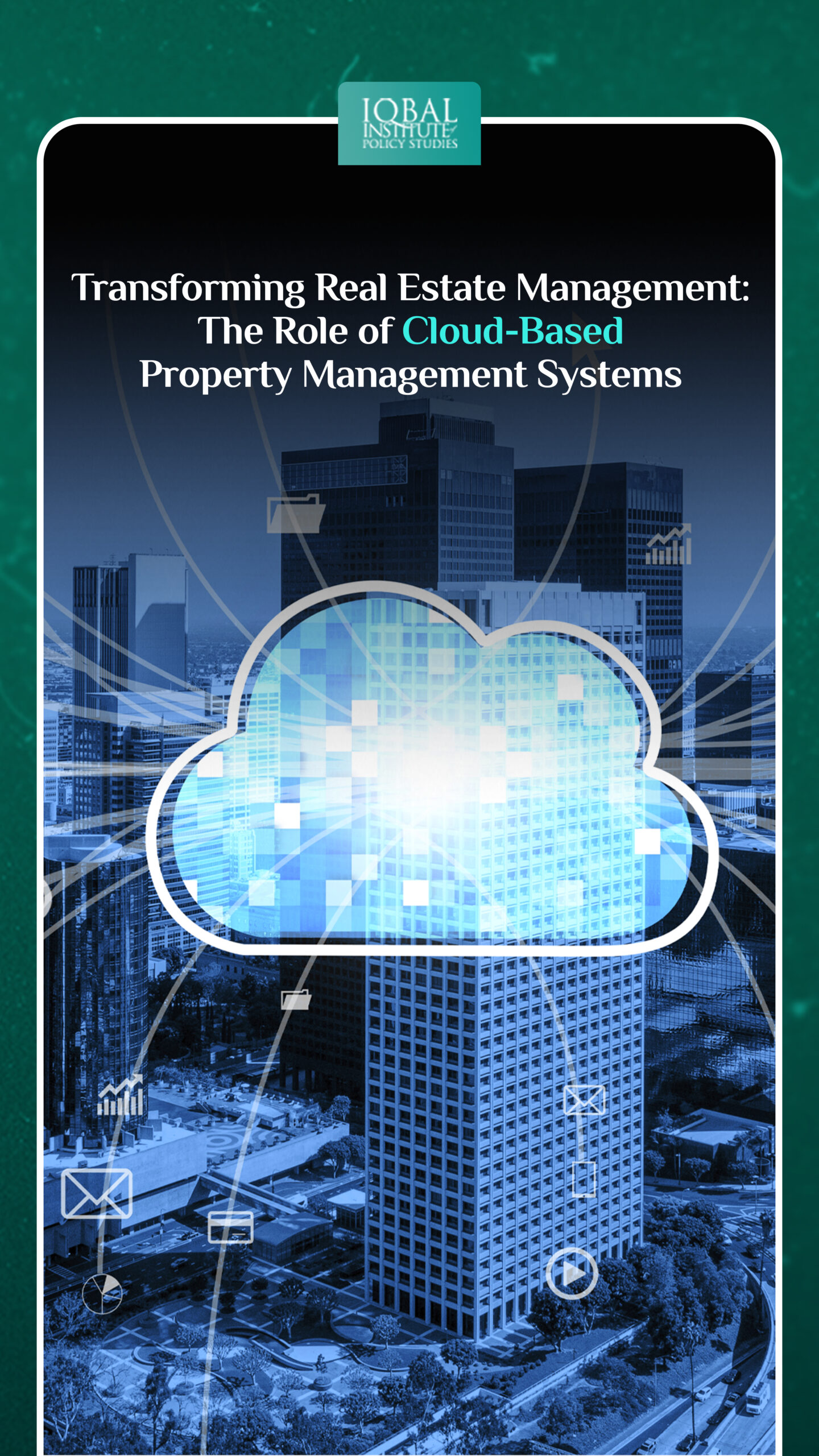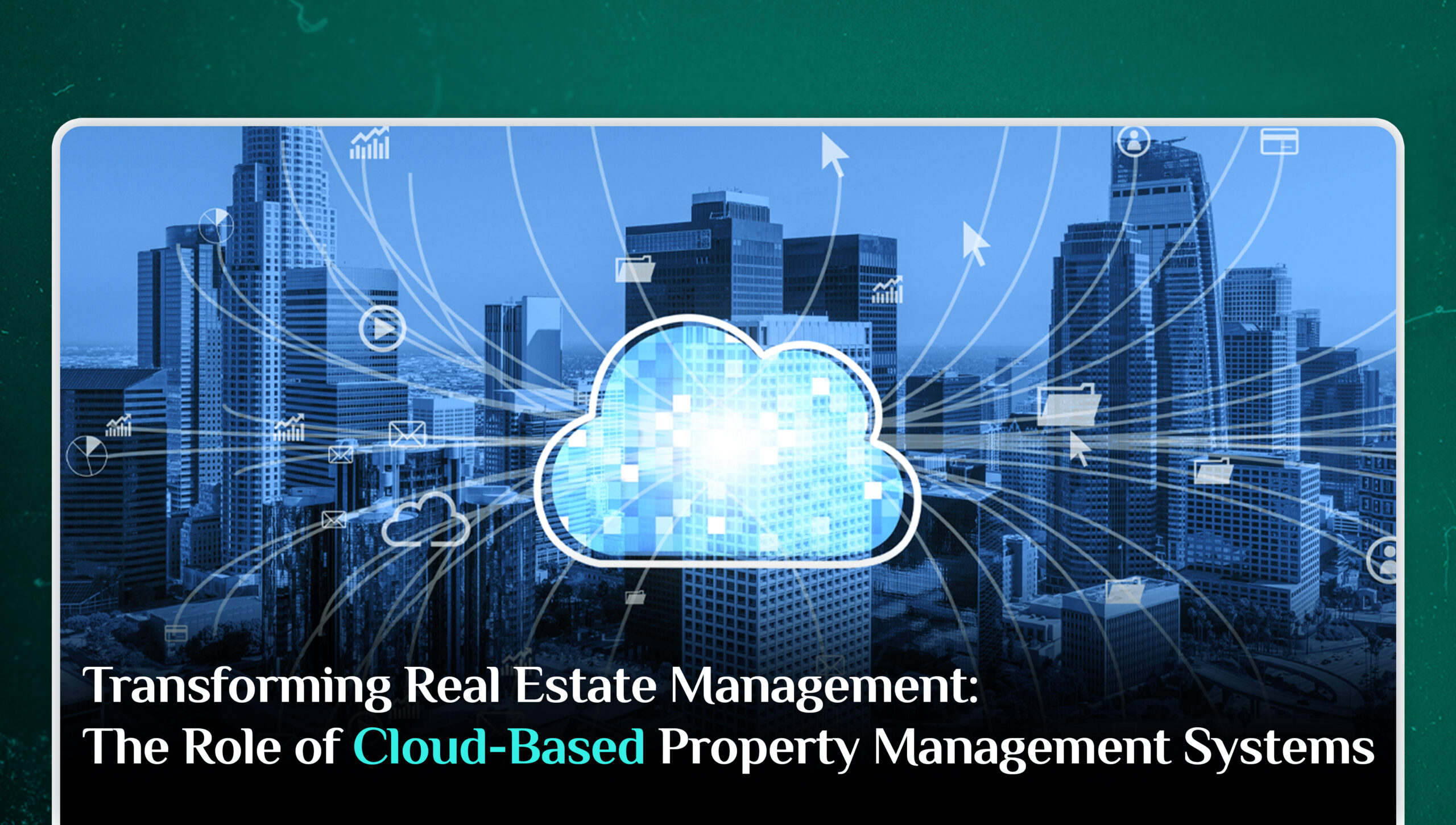Introduction
In recent years, the real estate industry has witnessed a technological revolution, with cloud computing playing a pivotal role in streamlining operations and enhancing efficiency. Cloud-based property management systems have emerged as a game-changer, empowering real estate professionals with advanced tools and functionalities to manage their portfolios effectively. This blog explores the significant role that cloud-based property management systems play in the real estate industry, revolutionising how properties are managed, tenants are engaged, and overall business operations are conducted.
What are Cloud-Based Property Management Systems?
Property management systems have evolved. Twenty years ago, it was spreadsheets, papers, and filing cabinets. Ten years ago, it was downloaded software. Today, they’re evolving yet again into cloud-based systems. Cloud-based property management systems are stored in the cloud and don’t require any servers or hardware. Log in from any device, and get full access to your property management software from anywhere with an internet connection.
How Does Cloud-Based Property Management Software Work?
Using cloud-based property management software, customers may access their data and applications from any location with an internet connection. Instead of being tied to a single computer or network, cloud-based software is hosted on remote servers that can be accessed online.
When you utilise cloud-based property management software, all data is securely stored in the cloud, eliminating the need for manual backups and the fear of losing important information if your computer breaks. This enables several company people to access and collaborate on duplicate files without worrying about version control issues.
Furthermore, cloud-based property management software frequently delivers real-time updates and synchronisation across all devices, ensuring that everyone has constant access to the most up-to-date information.
This enables customers to make faster decisions and respond to changes in their properties or renters’ demands.
A cloud-based property management system has numerous advantages over traditional desktop systems, including enhanced flexibility, collaboration capabilities, security measures, and accessibility choices.
Benefits of Cloud-Based Property Management Systems
For good reasons, cloud-based property management software has taken the real estate industry by storm. Some of the significant advantages are discussed below:
Centralised Property Data Storage
Cloud-based property management systems offer a centralised repository for storing and organising property-related data. Gone are the days of scattered paper files and disparate spreadsheets. With the cloud, property managers can securely store and access critical documents, lease agreements, maintenance records, and tenant information from any device with an internet connection. This centralised approach improves data accessibility and collaboration and reduces the risk of data loss.
Efficient Lease Management
Cloud-based property management systems simplify the lease management process. Property managers can create, store, and track lease agreements digitally, eliminating the need for physical paperwork. Automation features streamline lease renewals, rent escalations, and notice periods, ensuring compliance and reducing administrative burden. Additionally, cloud systems enable digital signature capabilities, allowing tenants to sign leases electronically, speeding up the process, and enhancing convenience for all parties involved.
Streamlined Rent Collection
Cloud-based systems provide seamless rent collection processes. Property managers can set up online payment portals, enabling tenants to pay rent electronically, resulting in faster and more secure transactions. Cloud-based systems also generate automated rent reminders and track payment histories, reducing delinquencies and minimising the time and effort required for manual rent collection.
Maintenance Tracking and Work Order Management
Cloud-based property management systems streamline maintenance operations. Property managers can receive maintenance requests online, assign work orders to contractors, and track progress in real-time. This centralised approach ensures prompt issue resolution and efficient communication and provides a historical record of maintenance activities. Cloud-based systems can also integrate with IoT devices, enabling remote monitoring and proactive maintenance, reducing costs, and enhancing tenant satisfaction.
Enhanced Tenant Communication
Cloud-based property management systems facilitate improved tenant communication and engagement. With cloud platforms, property managers can send tenants mass communications, announcements, and updates instantly. Moreover, cloud systems enable tenant portals, allowing tenants to access account information, submit maintenance requests, and communicate with property management staff conveniently. This seamless communication enhances tenant satisfaction, improves response times, and builds stronger relationships.
Real-Time Reporting and Analytics
Cloud-based property management systems provide real-time reporting and analytics capabilities. Property managers can generate detailed financial reports, occupancy rates, and property performance metrics with just a few clicks. Cloud systems offer customisable dashboards and data visualisation tools, enabling real-time insights for informed decision-making. These analytics empower property managers to identify trends, forecast revenues, and optimise property performance.
Scalability and Cost Efficiency
Cloud-based property management systems offer scalability and cost-efficiency advantages. Real estate businesses can scale their operations up or down based on demand without extensive on-premises infrastructure. Cloud systems eliminate the costs associated with hardware maintenance, software updates, and data backups, as the cloud provider manages these responsibilities. This scalability and cost efficiency enable real estate companies to optimise their resources and focus on their core business activities.
Conclusion
Cloud-based property management systems have revolutionised the real estate industry by providing efficient, scalable, and cost-effective solutions. From centralised data storage to streamlined lease management, maintenance tracking, and tenant communication, these systems enhance operational efficiency, improve tenant satisfaction, and boost overall productivity. As the industry continues to evolve, embracing cloud technology is essential for real estate professionals to stay competitive and meet the evolving demands of the market.
This article is written by Radma Nouman. Radma is a Research Analyst at the Iqbal Institute of Policy Studies (IIPS).



Leave a Reply